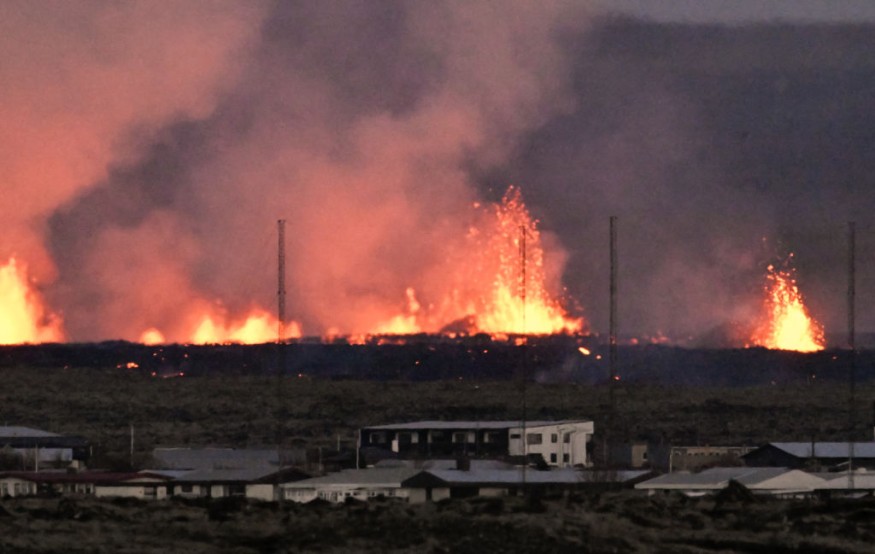A volcanic eruption ravages Grindavik, Iceland, consuming homes and prompting the prime minister to declare a "black day."
Defensive walls, erected during prior seismic activities, offer some protection. The eruption underscores the unpredictable forces of nature and the need for preparedness in vulnerable communities.

A Black Day for Iceland
Prime Minister Katrín Jakobsdóttir called for calm and solidarity among residents in Grindavík, declaring it a "black day for all of Iceland" while expressing optimism for the future.
Böðvar Sveinsson, a natural disaster expert at the Icelandic Meteorological Office, reported a subsiding eruption with reduced lava flow near homes. Despite the evacuation of nearly 4,000 residents, no injuries or fatalities were reported, although challenges arose in relocating some farm animals.
The volcanic eruption in southwest Iceland, north of Grindavik, unfolded dramatically on Sunday, January 14, with molten lava engulfing several homes in the northernmost part of the fishing town. The eruption commenced just before 8 am local time, followed by a widening second fissure around midday, prompting concerns of additional fissures in the coming days.
Police chief Víðir Reynisson emphasized ongoing magma inflow into the tunnel, highlighting the real danger of a large crack opening in Grindavík, potential gas pollution, and the possibility of new eruptions.
Flights to and from the country remain unaffected, and President Gudni Johannesson assured there is no risk to life, although infrastructure faces potential damage. Departure and arrival schedules at Keflavik Airport show no signs of disruption, with Iceland Air confirming the airport's normal operation. However, the Blue Lagoon Hotel, a local tourism hotspot, was evacuated after recently reopening.
Local media reported at least three homes destroyed in Grindavik. Met Office expert Benedikt Halldórsson emphasized the severity, stating it's challenging to imagine a worse scenario. President Johannesson acknowledged infrastructure risks but assured no lives were in danger. Lovísa Mjöll Guðmundsdóttir highlighted uncertainty, noting the potential for more cracks due to increased magma inflow indicated by GPS data.
The president of Iceland acknowledged the forces of nature and emphasized efforts to protect lives and structures, expressing hope for the best. The area experienced its last eruption in December, leading to the evacuation of Grindavík, but the town was ultimately spared as the lava flowed in a different direction.
Iceland's Ever-Changing Terrain
Iceland stands as a European marvel with 33 active volcano systems, marking the continent's highest count. Despite the country's familiarity with volcanic eruptions, the Reykjanes peninsula's volcanic activity lay dormant for an impressive 800 years until 2021.
Nestled between the massive Eurasian and North American tectonic plates, Iceland finds itself in a continuous dance of geological activity, functioning as a seismic and volcanic epicenter as these plates drift apart.
With an extensive underwater mountain chain crafting a rift valley, Iceland undergoes a perpetual metamorphosis. This geological theater involves the ceaseless rise, cooling, and widening effect of molten lava, orchestrating the separation of continents.
The unique combination of the spreading boundary and a mantle plume further contributes to the island's dynamic nature, giving rise to ongoing volcanic activities, rift valleys, and the creation of novel land formations.
This intricate interplay has been molding Iceland's ever-evolving geological panorama, characterized by earthquakes, eruptions, and the gradual formation of new landscapes, over countless millennia.
RELATED ARTICLE:
Iceland Volcano Erupts After Weeks of Heightened Seismic Activity, Forcing Thousands To Flee
Check out more news and information on Volcano in Science Times.












